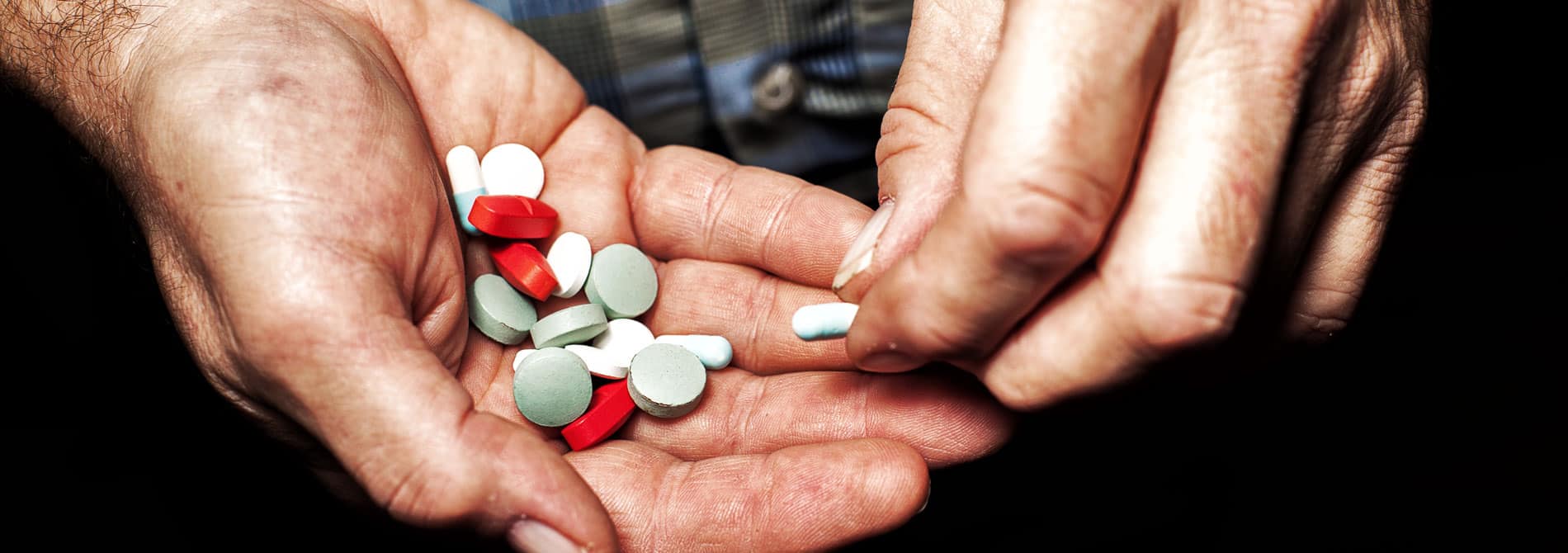As a middle-aged adult thinking about the effects on aging on a parent, addiction may not be one of the topics that comes to mind first yet it can be a very real threat to the health of a senior citizen. You may have ignored some warning signs of an addiction in your mother or father already or downplayed the misuse of drugs or alcohol as a rare occurrence. Today let’s talk about addiction in older people and how to assess if there’s substance use disorders among your older family members.
Addiction is not exclusive to younger generations as research shows 17 percent of adults over age 65 have misused prescription medications, including the highly addictive benzodiazepines. As symptoms for addiction in older adults, such as problems with memory and changes to sleeping habits, can appear similar to other conditions, it’s helpful to recognize these warning signs early and encourage an older parent to find treatment for addiction and any potential underlying mental health disorders. Some facilities offering a dual diagnosis treatment also provide programs designed specifically for adults with late-onset addiction, too.
If you or a loved one need help, call our admissions team today at 561-841-1033.Addiction and Life Changes
While addiction can return in the life of a older adult who’s been in recovery a long time, it can begin for the first time later in life in association with life changes of great significance. Those changes can include the death of a loved one or spouse, retirement from a job, unstable financial situation, poor mental or physical health, moving to a new community or a new home, or ongoing conflict among friends or family. An elderly parent may begin abusing drugs or alcohol in response to any of these changes and they may be able to keep it hidden much of the time, especially during periods with little family contact in person.
Addiction Symptoms in Older Adults
Addiction symptoms can appear similar to symptoms of a variety of other conditions so their appearance should be treated as an early warning something more serious is going on. Your parent may have trouble remembering important details, their sleep patterns may change, and they may begin to exhibit bruises or other injuries or complain about developing chronic pain. A lack of self-care is another sign of potential drug or alcohol misuse in an elderly parent.
Use of Prescription Drugs in Adults
Access to prescription drugs is common among seniors as nearly one-third of adults over 65 have ongoing prescription medications. Addiction in this population can begin with the same medications they have access to already, including meds to treat anxiety, chronic pain, insomnia, and other conditions. Abuse may start unintentionally as increasing their own doses or the frequency with which they take their prescription pills, such as benzodiazepines.
Co-Occurring Disorders Among Older Adults
An aging parent with an addiction also may be living with an undiagnosed mental health disorder or may be already receiving treatment for anxiety or depression without acknowledging the addiction during visits to their physician or therapist. Effective treatment for an older adult with both a drug addiction and an underlying mental health disorder can be provided through programs offering a dual diagnosis form of services. For older adults who have experienced trauma earlier in life or survived a more recent traumatic experience, trauma therapies can be a part of an integrated approach to physical, emotional, and mental recovery.
Finding Age-Specific Treatment for an Aging Parent
Older adult recovery programs are available for older family members seeking help. These types of programs are designed to meet the treatment needs of the nearly one-third of adults whose addiction begins late in life. Any treatment option for an older family member living with addiction should include a medically-supervised detox as any personal attempts to reduce the amount of a medication, such as benzos, or stop using it altogether can be harmful or even fatal.
Hanley Center – A Path to Recovery
Hanley Center is a well-known care provider offering a range of treatment programs targeting the recovery from substance use, mental health issues, and beyond. Our primary mission is to provide a clear path to a life of healing and restoration. We offer renowned clinical care and have the compassion and professional expertise to guide you toward lasting recovery.
For information on our programs, call us today: 561-841-1033.




